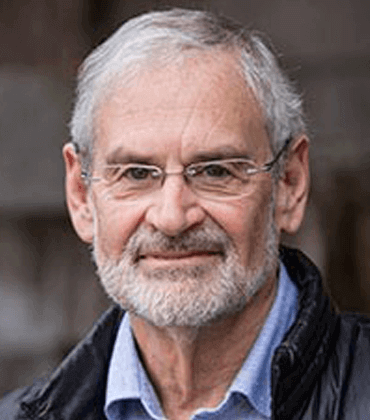
Fred Hutchison Cancer Center
University of Washington
School of Medicine
Bob is a Professor in the Basic Sciences Division of the Fred Hutchinson Cancer Research Center and an Affiliate Professor of Biochemistry at the University of Washington School of Medicine. He received his Ph.D. in Biophysics from the University of Chicago and carried out postdoctoral work in virology at the Institut Suisse de Recherches Experimentales sur le Cancer, and then at the Massachusetts Institute of Technology (MIT). He previously served on the Scientific Advisory Boards of Agensys, Otogen, and Shenogen. Bob is a member of the National Academy of Sciences, and the American Academy of Arts and Sciences, and is a Fellow of the American Association for the Advancement of Science and the American Association for Cancer Research Academy. He was awarded the Landon-AACR Prize for Basic Cancer Research. Bob’s laboratory has focused its research on the Myc family of transcription factors. These proteins are part of a regulatory network that is essential for normal development and cellular function but is frequently dysregulated in a wide range of human cancers, including breast, ovarian, and prostate cancer, Burkitt’s lymphoma, and neuroblastoma. Work from Bob’s laboratory has contributed to our present understanding of how Myc proteins drive cancer progression, metabolism, and growth. Bob and colleagues discovered that transcription factors such as Myc possess the ability to promote carcinogenesis through their targeted activation of gene expression, mediated through interactions with dimerization partner proteins. They discovered that Myc binds to the Max protein and that the resulting Myc-Max heterodimer associates with DNA in order to regulate widespread gene expression. Moreover, they showed that dimerization of Max with the Mxd (aka Mad) protein family can antagonize Myc-Max activity by recruitment of transcriptional repression machinery to genomic binding sites shared by both Myc-Max and Mxd-Max. More recent work from Bob’s lab has shown that some members of the extended Myc transcriptional network cooperate with Myc-Max to facilitate metabolic changes that drive tumorigenesis, while other network members can act to suppress oncogenesis. Their research suggests that therapeutic targeting of Myc in cancers will entail an understanding of the integrated function of the network as a whole.
Kronos Bio, Inc.
1300 So. El Camino Real
Suite 400
San Mateo, CA 94402
+1 (650) 781-5200
Kronos Bio, Inc.
301 Binney Street
2nd Floor East
Cambridge, MA 02142